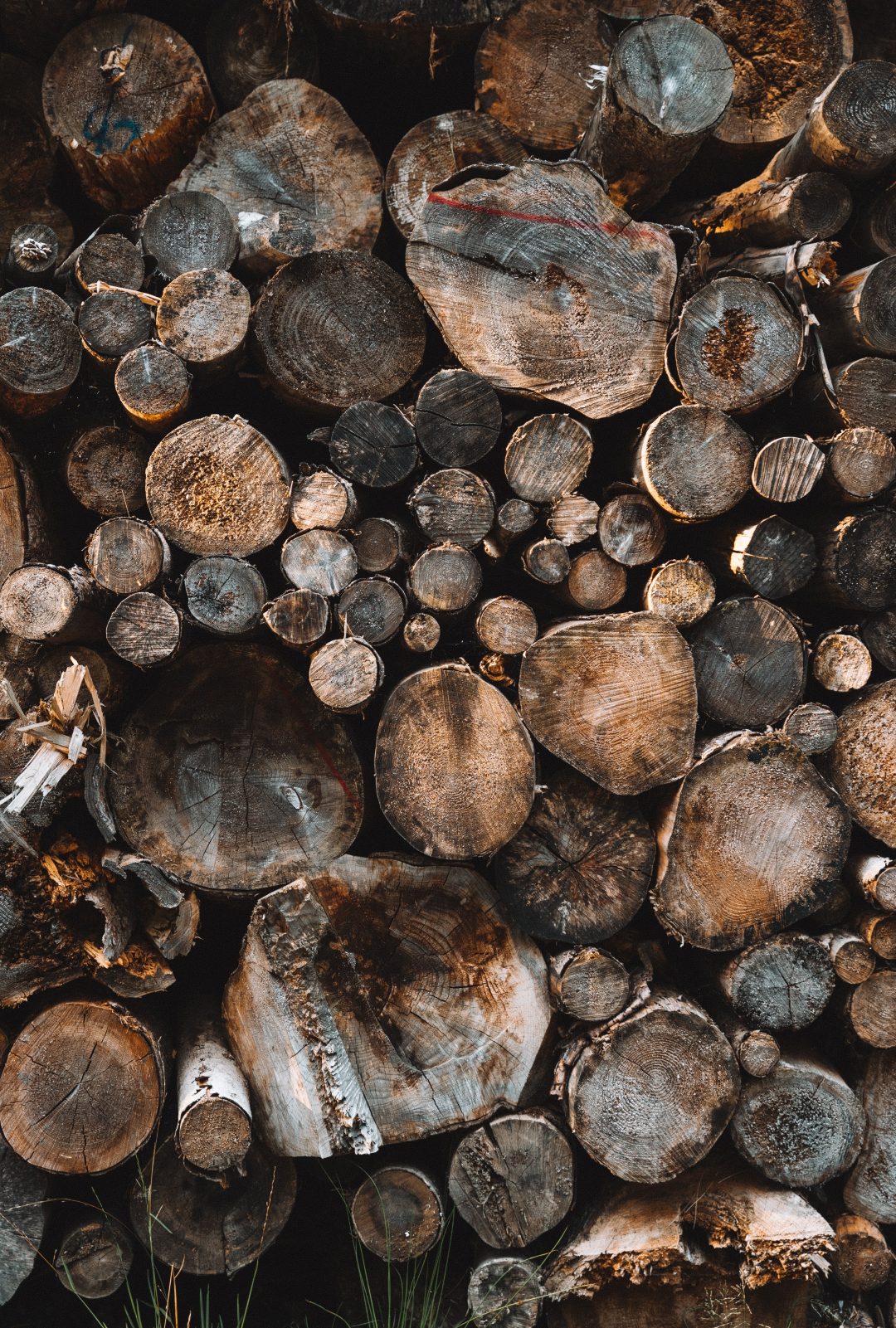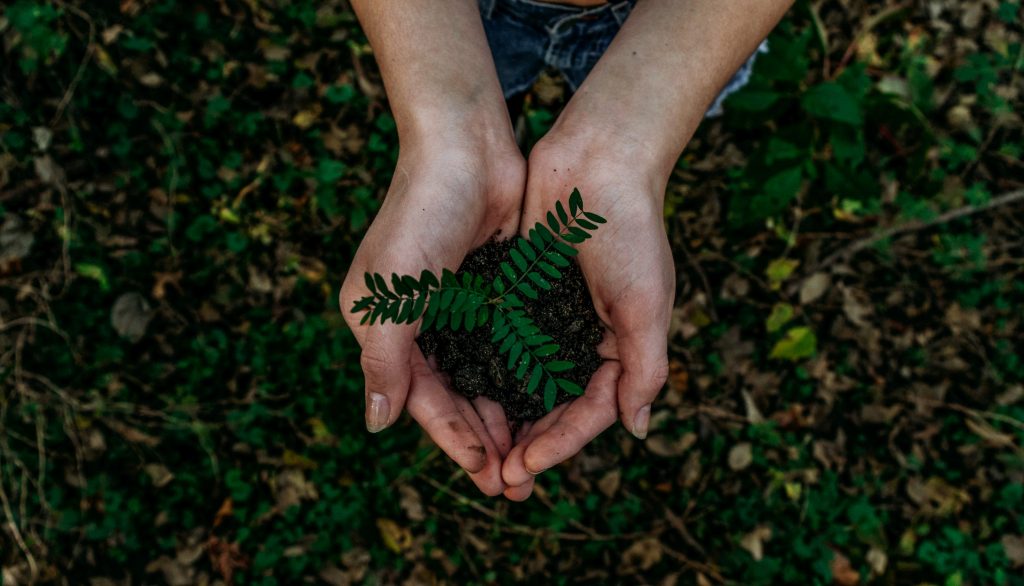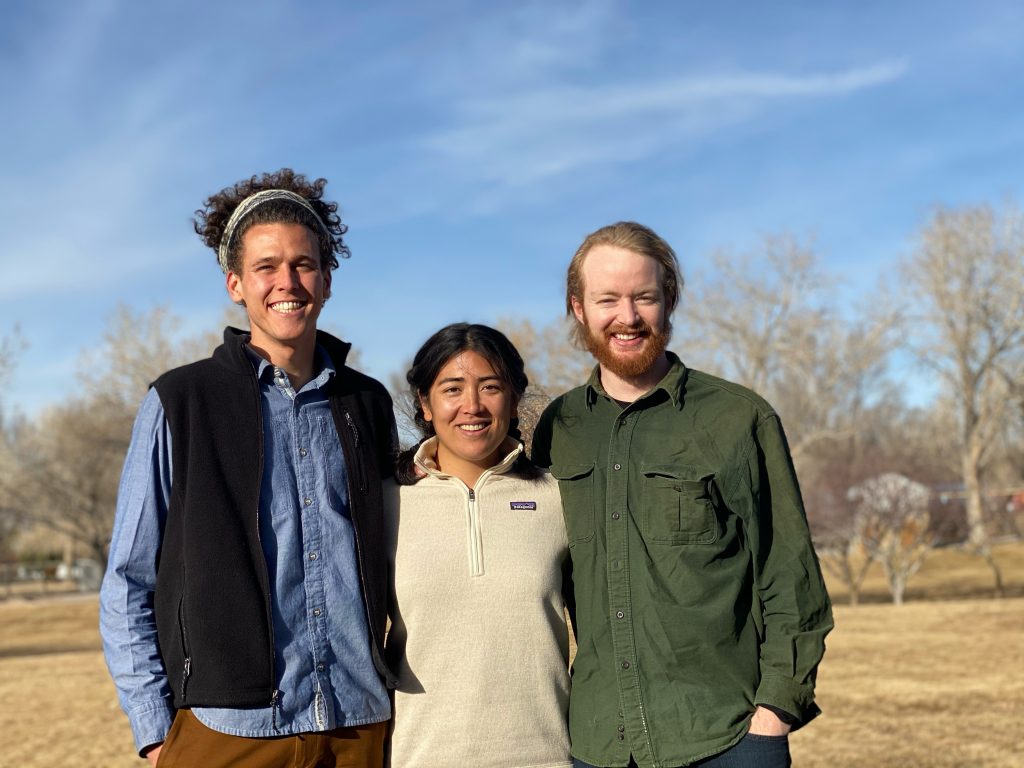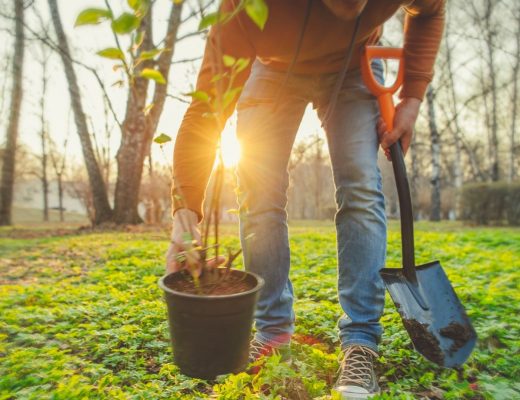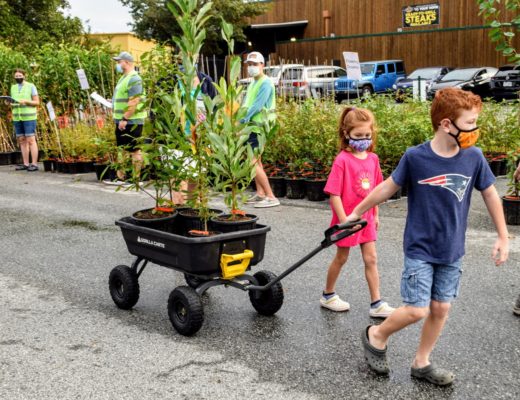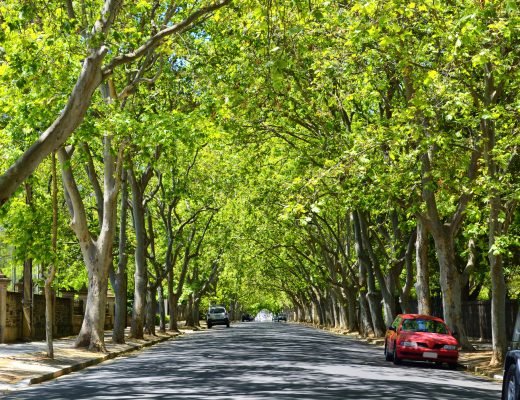By Bob Cunningham
There are countless ways trees benefit urban communities and society as a whole, but they also come with a built-in hindrance: They are expensive.
U.S. cities lose an average 36 million trees each year due to disease or infestation, age and extreme weather, resulting in economic losses up to $786 million annually.
Cambium Carbon, in partnership with the Arbor Day Foundation, has made its mission to give trees a second life by saving them from landfills and repurposing the wood for floors or furniture and in doing so paying for new trees to be planted in their place.
That’s the idea behind Reforestation Hubs, Cambium Carbon’s innovative pilot program that was launched earlier this month. It is geared toward improving resource efficiency and carbon capture at the municipal level. Reforestation Hubs will engage local businesses, residents and policymakers to close the loop on urban wood waste, upcycling removed trees and developing new revenue to support tree planting and maintenance. Pilot cities for the program include Denver; Eugene, Oregon; New York; and Pittsburgh that builds on exigent work in Philadelphia, Baltimore and New Haven, Connecticut.
Making Cambium Carbon a reality
Cambium Carbon got its start on the campus of Yale University, founded by then graduate students in the School of Forestry Ben Christensen and Marisa Repka, as well as longtime friend Theo Hooker who saw a big opportunity to address climate change.
“The work started when I was at the World Resource Institute two summers ago and focusing on federal carbon policy,” Christensen said. “We were looking at how we’re going to really address climate change at scale in the next 30 years, where can we get the most bang for our buck? One of the key ways we can do that is by having trees support reforestation and tree survival.
“Then there’s also a big opportunity to put people first and to have projects that are not just good for the planet but are really good for communities. They put people first, and they’re creating systems that are helping to address problems like lack of employment and helping to support economic recovery coming out of COVID.”
Arbor Day Foundation, Cambium Carbon missions align well
The missions of Arbor Day Foundation and Cambium Carbon meshed well from the beginning.
“The Foundation has long recognized the opportunity that exists when it comes to addressing wood waste. Cambium Carbon’s model of turning wood waste into assets to fund the stewardship and growth of our urban canopies is well-aligned with our mission,” said Kyle Kornack, manager of Innovation at Arbor Day Foundation.
The Foundation received a $200,000 award from the Nature Conservancy’s Natural Climate Solutions Accelerator program through the generous support of the Doris Duke Charitable Foundation to develop and launch Reforestation Hubs.
“That grant served as much-needed catalytic capital, which is now funding our partnership and enabling us to lay the groundwork necessary to ultimately pilot Reforestation Hubs in key cities across the country,” Kornack said.
Nature Conservancy research shows that management and restoration of forests, grasslands and wetlands could account for 37% of the carbon reductions necessary to keep global temperature from increasing more than 2 degrees Celsius, Kornack said.
Kornack noted the benefits of growing our urban tree canopies, which the Reforestation Hubs aims to support:
- “Community trees filter airborne pollutants that tend to worsen asthma and chronic respiratory problems, which is one of the leading causes of death in the United States.”
- “They are effective tools to cool urban heat islands and reduce health conditions related to heat waves – which kill an estimated 12,000 Americans and impact millions more each year.”
- “Time and time again, research has demonstrated the positive impacts that trees and greenspace have on our mental health and mental well-being.”
- “There’s also green jobs that will be coming out of this as well.”
Overall, Kornack has been impressed with Cambium Carbon from the very beginning of their partnership.
“On behalf of the Foundation, I’m honored to be working with the Cambium Carbon team on a novel and impactful project,” he said
Creating a circular urban wood economy
Each city’s Reforestation Hub will be treated differently because each will have its own needs.
“We recognize that this is going to look different in every city and that the needs of New York City are different from the needs of Pittsburgh, Eugene or Denver,” Repka said. “The program will be ever-evolving in the sense that we’re not looking to roll out a cookie cutter solution for every city, but rather think about how we can create something that’s tailormade and adapted to the specific challenges and opportunities of the local areas.”

The Arbor Day Foundation, with its connections across the United States, can help fill in those gaps for the Cambium team.
“For us having the kind of credibility and national network that working with Arbor Day provides is something that definitely opens doors for us,” Hooker said. “As we think about reaching out to communities across the country, having a partner that has engaged with many of these communities and has a broad network that directly supports our goal to create new resources to support reforestation and a power station in and around cities.”
“I couldn’t think of a better partner — they’ve been super supportive,” Christensen said. “There are so many different things that the Arbor Day Foundation does, and we’ve been able to access and learn from a lot of different experts in the space, which has been really powerful.
“It’s exciting for an organization like Arbor Day to be very interested in the sort of entrepreneurial mindset we have at Cambium. We are looking forward to the partnership continuing to flourish and expand.”
Now that the Reforestation Hubs project has kicked off in the four pilot cities, for the next 3-4 months Cambium Carbon will be taking an in-depth analysis of the local urban forestry context and understanding of the baseline data in each city to see what happens to trees when they die.
“Where does that material go?” Repka said. “In a landfill? Is some of that chipped for mulch? Is any of that reclaimed for higher-value products? What kind of the opportunities are there? We are working to identify and fill key gaps within the existing value chain.”
Ultimately, Cambium Carbon envisions Reforestation Hubs all across the country that are providing natural climate solutions that are creating jobs and are helping to solve cities’ waste problems.
“That is our big vision,” Christensen said. “We want to see national scale impact and while prioritizing attention on the local context.”
Learn more about how Cambium Carbon is dedicated to reducing urban wood waste, building local, resilient economies, and fighting climate change at https://www.cambiumcarbon.com/.

